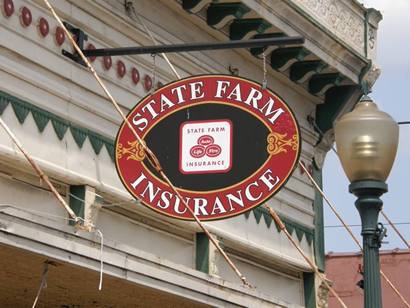Supreme Court of Kentucky (SCOKY) will hear oral arguments on Feb. 11, 12 & 13, 2015.
One of the arguments, I hope to catch involves the statute of limitation for underinsured motorist (UIM) claims. The case is State Farm Mutual Automobile Insurance Company vs. Lonnie Dale Riggs.
The Supreme Court has permitted shorter limitations periods for UIM claims (a written contract was 15 and now is ten years) if the shorter period is reasonable. A strict 2-year UIM limitation has been shot down for obvious reasons that it is shorter than the underlying tort. And now the limitation of the contractual UIM mirroring the underlying tort action is now being examined (eg., 2 years from the car accident or last PIP payment, whichever is later).
However, I would submit to you the problem is two-fold and which is compounded by the fact the UIM claim is one of contract but with the damages sounding in tort. I think it should rest on contract and thus be ten years… period. Why?
- It is a contract! Although the contract damages may be measured in tort, it is a contract and a myriad of cases reflect that it is a contract should be the driving force.
- There is no UIM claim until after the underlying tort limits have been exhausted or settled at less than the limits with any UIM claim conditioned on complying with KRS 304.39-320 (Coots v. Allstate notice permitting the UIM carrier to preserve its subrogation/indemnity claims by advancing the settlement offer). Thus, how can there be a UIM statute of limitation period running from a date of accident or PIP payment when there is no cause of action (eg., contractual claim for UIM) yet! Until, the UIM is exposed, there is no cause of action, until there is no cause of action, there is no accrual. No accrual means no limitations of action (note the use of “action” is part and parcel of “limitation of action” or statutes of limitation (of action).
- Two choices present themselves here: 10 year SOL under contract would obviate all the concerns and say a contract is a contract vs. any shorter period by contract accrues not on the accident or PIP payment but on the date there is a cause of action which can be two or more years AFTER the accident. This is a simple bright line test and does not rely upon the obscurities of a tort cause of action or PIP payments which as seen an a case argued late last year can be lost in poor record keeping or confusing payments/refunds/reissues, etc.
- The insured is entitled to the benefit of a contractual bargain of a statutory coverage. Stealth draftmanship that is both one-sided and one-handed and solely for the benefit of the UIM carrier needs to be rooted out and removed from potential gamesmanship and confusion.
- The UIM insurer will not be prejudiced and the only loss they will incur is an easy out to avoid coverage and craft an exclusion where one should not be.
- Think of two simple scenarios:
- Plaintiff sues on tort from auto collision and settles with the tortfeasor’s liability insurer on the last day of the tort claim.However, he/she must amend suit or file suit immediately since the insured must comply with the Coots notice procedures to preserve his/her claim for UIM benefits (and rest assured the insurer will seek compliance thereof which is both contractual and statutory).
- Another obvious scenario is that prior to suit, the liability insurer need not disclose the liability limits (which is the starting point for UIM exposure). Ouch.
- Five briefs on what is really a simple proposition is mind-boggling.
Here it is on Feb. 11:
11:00 a.m. STATE FARM MUTUAL AUTOMOBILE INSURANCE COMPANY V. LONNIE DALE RIGGS (2013-SC-000555-DG)
APPELLANT BRIEF
AMICUS CURIAE BRIEF
AMICUS CURIAE BRIEF
APPELLEE BRIEF
REPLY BRIEF
“Contract. Automobile Insurance. Underinsured Motorist Coverage. Issues include whether an automobile insurance policy provision requiring underinsured motorist claims to be brought within the same time period as tort claims under the Motor Vehicle Reparations Act—two years from the date of the accident or last basic reparations payment, whichever is later—is valid and enforceable.”
Discretionary Review granted 6/11/14
Hardin Circuit Court, Judge Ken Howard
Attorney for Appellant: David T. Klapheke
Attorney for Appellee: Timothy R. McCarthy
For Kentucky Supreme Court LIVE arguments, click here on date and time of argument.
Click here for link to table of all monthly oral argument calendars at Kentucky’s Administrative Office of the Courts (AOC) from 2005 to date.
Click here for a link to all of the Kentucky Court Reports postings on Supreme Court argument calendars.
For the complete calendar with links to the appellate briefs, counsel, issues, case name, dates, times and more, then continue reading!
[gview file=”https://kycourtreport.com/wp-content/uploads/2015/02/SCOFEB15.pdf”]

